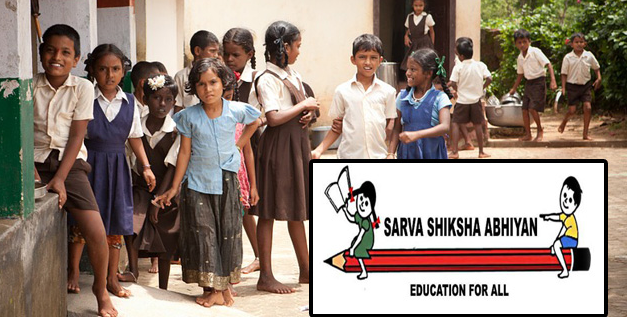The Struggle for Education Funds: Centre-State Tussle (GS Paper 2, Education)

Introduction
- In India, the principle of decentralization in education has been a cornerstone of efforts to achieve universal education over the past two decades.
- The Sarva Shiksha Abhiyan (SSA), initiated in 2001 and continued across different political regimes, aimed to provide context-specific solutions tailored to the needs of local communities.
- However, recent developments where the Centre has withheld funds under SSA from certain states have brought to light significant concerns regarding the autonomy of states in managing their educational priorities.
The Flexibility Gap
- Despite assertions supporting federalism, practical autonomy for states in education has often been constrained.
- Previously, states like Gujarat and Madhya Pradesh, under BJP rule, frequently voiced discontent over central control of education funds during non-BJP governments.
- In more recent times, the Union education ministry's decision to withhold SSA funds from states such as Delhi, Punjab, and West Bengal due to their reluctance to adopt the Pradhan Mantri Schools for Rising India (PM-SHRI) scheme illustrates ongoing discord between the Centre and non-NDA states.
Pradhan Mantri Schools for Rising India (PM-SHRI) Scheme
Overview:
- Introduced in 2022 as a Centrally Sponsored Scheme, PM-SHRI aims to transform selected schools into exemplars of the National Education Policy 2020 (NEP).
- Key components include initiatives for environmental sustainability (green schools), experiential and learner-centric pedagogies, competency-based assessments, and collaboration with local industries to enhance employability.
State Concerns:
- Delhi and Punjab argue that they already have initiatives similar to PM-SHRI but object to prefixing their schools with "PM-SHRI," contending that it diminishes the credit due to the states for their own educational reforms.
- West Bengal raises similar objections, emphasizing issues related to cost-sharing and financial strain on state-funded educational institutions.
Impact on Students
The standoff over SSA funds and the PM-SHRI scheme has immediate and long-term implications for educational outcomes:
- Financial constraints in government schools, exacerbated by withheld funds, have led to delays in salary payments for over 2,000 teachers and support staff in Delhi alone.
- Initiatives aimed at improving learning outcomes and infrastructure development in Delhi and Punjab, under AAP governance, face setbacks.
- While states like Kerala and Tamil Nadu, initially hesitant, have signed MoUs with the Centre, Delhi, Punjab, and West Bengal's stance highlights the divisive nature of education funding policies and their impact on educational reforms.
Conclusion
- Achieving equitable and effective educational outcomes in states like Delhi, Punjab, and West Bengal requires collaborative efforts between the Centre and states.
- The politicization of SSA funds and the implementation of the PM-SHRI scheme underscores challenges in prioritizing educational welfare over political considerations.
- It is crucial for both levels of government to transcend partisan interests and prioritize the future of the young by ensuring robust educational policies and sustainable funding mechanisms are in place.
- Only through genuine collaboration can India achieve its goals of universal education and inclusive growth.


